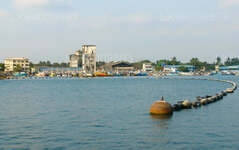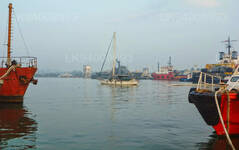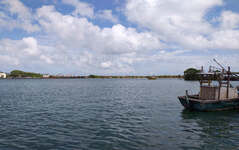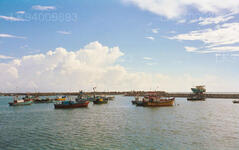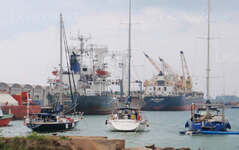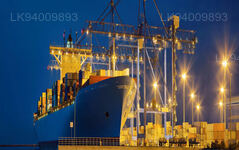
Galle City
Galle, a charming coastal city in Sri Lanka, boasts a rich history and vibrant culture. Its iconic Dutch Fort, a UNESCO World Heritage Site, stands as a testament to colonial influence. Explore pristine beaches, immerse in cultural festivals, and savor local cuisine amidst the old-world charm of Galle.
Galle Harbour
Galle Harbour is a natural harbour, located in Galle, on the south-western coast of Sri Lanka. Currently Galle port serves as one of the most active regional ports in the country. It is also the only Sri Lankan port that provides facilities for pleasure yachts. International yacht societies have recognized Galle Harbour as one of the world’s best attractions for yachting.
About Galle District
Galle is a city situated on the southwestern tip of Sri Lanka, 119 km from Colombo.Galle is the best example of a fortified city built by Europeans in south and Southeast Asia, showing the interaction between European architectural styles and south Asian traditions. The Galle fort is a world heritage site and the largest remaining fortress in Asia built by European occupiers.
Galle is a sizeable town, by Sri Lankan standards, and has a population of 91,000, the majority of whom are of Sinhalese ethnicity. There is also a large Sri Lankan Moor minority, particularly in the fort area, which descend from Arab merchants that settled in the ancient port of Galle.
About Southern Province
The Southern Province of Sri Lanka is a small geographic area consisting of the districts of Galle, Matara and Hambantota. Subsistence farming and fishing is the main source of income for the vast majority of the people of this region.
Important landmarks of the Southern Province include the wildlife sanctuaries of the Yala and Udawalawe National Parks, the holy city of Kataragama, and the ancient cities of Tissamaharama, Kirinda and Galle. (Although Galle is an ancient city, almost nothing survives from before the Portuguese invasion.) During the Portuguese period there were two famous Sinhalese poets called Andare who was from Dickwella and Gajaman Nona who was from Denipitiya in Matara District, composing poems on common man.

